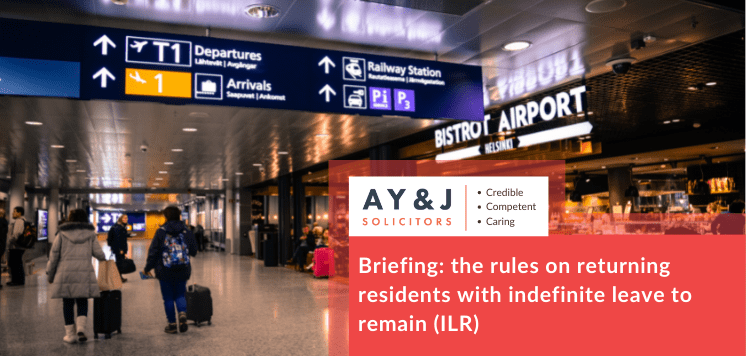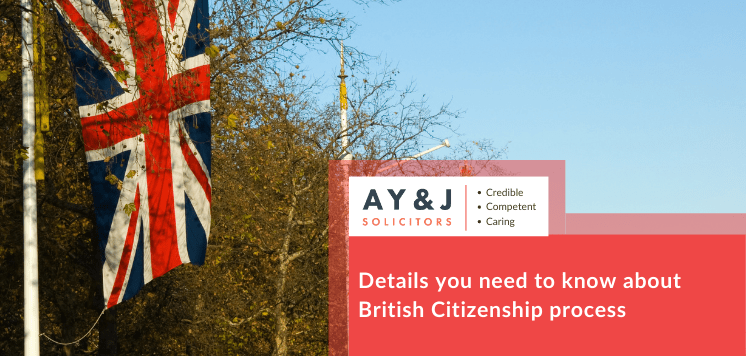Indefinite leave to remain in the UK is a type of UK immigration status that gives a person a right to live and work in the UK for as long as they like, with no further need to apply for a visa extension. However, at times, people with ILR status are refused entry at the UK border.
It may lead you to question how someone with valid ILR status can be stopped from entering the UK border.
Here is what you need to know.
ILR lapses after 2 years’ absence from the UK
Typically when a person with leave status, whether limited or indefinite, travels outside the UK, that person can re-enter the UK as long as the leave has not expired.
The law covering this type of re-entry is the Immigration (Leave to Enter and Remain) Order 2000 (SI 2000/1161).
However, Article 13(4)(a) of the Leave to Enter and Remain Order states:
Where the holder has stayed outside the United Kingdom for a continuous period of more than two years, the leave (where the leave is unlimited) or any leave then remaining (where the leave is limited) shall thereupon lapse.
It means if a person with ILR status stays outside the UK for more than 2 years, that person’s ILR is automatically terminated under the law. The ILR holder may still have a Biometric Residence Permit or a stamp or vignette status in their passport, which indicates that they have ILR, but in actuality, it has lapsed.
Many people assume that just having an ILR status allows them to depart and re-enter at will. But in reality, that isn’t the whole story.
Immigration Rules for returning residents
It may be possible for a person who previously held indefinite leave to remain to be readmitted to the UK and the ILR status restored. However, there is no right to readmission, and it is up to an individual immigration official whether or not re-admit the person as a returning resident.
The Immigration Rules have two paragraphs that deal with former residents of the UK who are returning to live long term.
18. A person may resume their residence in the UK provided the Immigration Officer is satisfied that the person concerned:
(i) had indefinite leave to enter or remain in the United Kingdom when he last left; and
(ii) has not been away from the United Kingdom for more than 2 years; and
(iii) did not receive assistance from public funds towards the cost of leaving the United Kingdom; and
(iv) now seeks admission for settlement.
18A. Those who qualify to resume their residence in accordance with paragraph 18 do not need a visa to enter the UK.
19. A person who does not benefit from the preceding paragraph by reason only of having been absent from the United Kingdom for more than two consecutive years must have applied for, and been granted indefinite leave to enter by way of entry clearance if he can demonstrate he has strong ties to the United Kingdom and intends to make the United Kingdom his permanent home.
The rules also offer an exception for migrants who are the spouse or partners of the armed forces serving overseas or specific diplomatic staff: they will always be permitted to re-enter as returning residents.
If a person is readmitted as a returning resident will have his/her ILR reinstated.
The Home Office Guidance on returning residents
The Home Office’s guidance on Returning residents guides immigration officials on exercising discretion under paragraph 19 of the Immigration Rules where a person whose ILR is terminated makes an application as a returning resident.
The factors to be considered for a resident who returns to the UK after 2 years are:
- Strength of ties to the UK
- Nature of ties to the UK (i.e., whether they are family, property, or business ties) and the extent to which those ties have been prolonged.
Time outside the UK
The period of time spent outside is an essential factor to be carefully assessed and considered and generally speaking the longer a person has remained outside the UK (over 2 years), the more difficult it will be for them to qualify for admission as a returning resident.
The longer a person stayed away from the UK, the more difficult it would be to argue that “strong ties” have been maintained.
Period of original residence in the UK
Typically, the longer the period of original residence in the UK, the more likely it is that the individual can prove strong ties to the UK, in order to be readmitted as a returning resident.
The immigration official must not refuse an application solely based the duration of the person’s original residence in the UK, if the other evidence points to the applicant having strong ties to the UK. The Home Office can apply discretion in this respect.
Reasons for leaving and wanting to return
Some reasons for staying outside the UK for more than 2 years could be:
- to care for family
- to access health treatment
- for employment/self-employment
- for study
The above-stated reasons for spending more than 2 years outside the UK are not in and of themselves grounds for readmission as a returning resident, however; the individual would need to present a compelling argument for re-admittance taking in to consideration all their circumstances.
Other compelling factors to consider
To be considered whether a person can be admitted as a returning resident at the Home Office’s discretion, other compelling reasons are:
- service overseas with a particular employer
- service abroad for the UK government, or as a dependant of a member of Forces or as an employee of a quasi-governmental body, a British company or a United Nations organisation
- Overseas employment in the public sector of a country that has strong ties with the UK.
- A continued period of study abroad by a person who wishes to return to the family in the UK on completion of studies
- A continued medical treatment(example, terminal illness) abroad of a kind not available in the UK
In cases of refusal or limited readmission?
Where someone is refused entry as a returning resident, re-entry to the UK would not be permitted, or readmission would be for a limited period.
Applying for returning resident visa before entry
Any individual staying outside the UK for more than 2 years must apply for a visa to re-enter the UK before travelling. It is a formal application which costs £516.
If the application is refused, the individual can seek an administrative review of the decision.
Taking an expert advice
At A Y & J Solicitors, our team has strong expertise in matters relating to ILR, with a high success rate. We have benefitted over 4000 clients in 10 years and have represented each case with compassion, care, and honesty.








